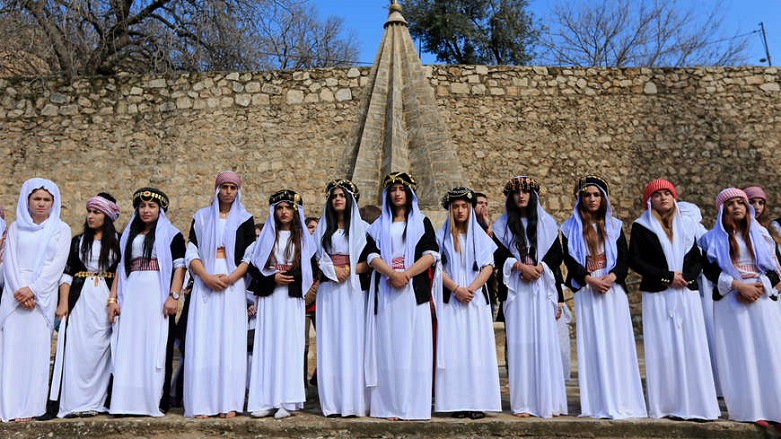Prince of Yezidis in the world congratulates Muslims on occasion of Eid al-Fitr

ERBIL (Kurdistan 24) – On Sunday, Prince Hazim Tahseen Saeed, the prince of Yezidis in the world, on the occasion of the Islamic holiday Eid al-Fitr, issued a congratulatory statement, wishing Muslims in the Kurdistan Region, Iraq, and the world a happy Eid, according to the Yezidi Spiritual Council.
“I am pleased to extend the most beautiful verses of love and peace, and the most beautiful bunch of congratulations to all Muslims in Kurdistan, Iraq, and the world,” Prince Hazim said, wishing Muslims celebrate the feast happily every year.
“We pray to the great Creator to grant us all to prosper and overcome crises and disasters that affect all mankind,” the Prince wrote, adding, “may this black cloud go away from the sky of our country.”
Prince Hazim, 56, was inaugurated by the Yezidi Spiritual Council in July 2019 as the chief of the Yezidi community in the world following the death of former Yezidi Prince Tahseen Beg, who was also Hazim’s father. Prince Tahseen passed away in Hanover, Germany, due to a chronic illness.
Read More: New leader of Yezidis sworn in at ceremony in Kurdistan Region
There are nearly 1.5 million Yezidis in the world; the largest number 700,000, with smaller numbers in Kurdish-speaking areas of Turkey and Syria. Around 360,000 Yezidi community members still live in displacement camps scattered across northwestern Iraq.
In its 2020 annual report, the US Commission on International Religious Freedom urges the US government to put pressures on the Iraqi government to facilitate the return of the Yezidi IDPs to Sinjar.
“[US government] maintain pressure on the Iraqi government to implement its own stated policy to rein in the PMF, particularly those factions that continue to engage in sectarian violence; present specific obstacles to the return and rehabilitation of Yezidis, Christians, and other religious and ethnic,” the Commission wrote.
Over 6,400 Yezidis were abducted by members of the so-called Islamic State who consider the community heretics, of whom around 3,500 – mostly women and girls – have returned alive.
Shingal (Sinjar), an area disputed between Erbil and Baghdad, is currently under the control of Iraqi forces and Shia militias. These forces, plus a limited number of Peshmerga and other Kurdish fighters, are present in Shingal and its outskirts with reports of tensions between them over who will control the strategic town that lies near the Syrian border.
Editing by Karzan Sulaivany
